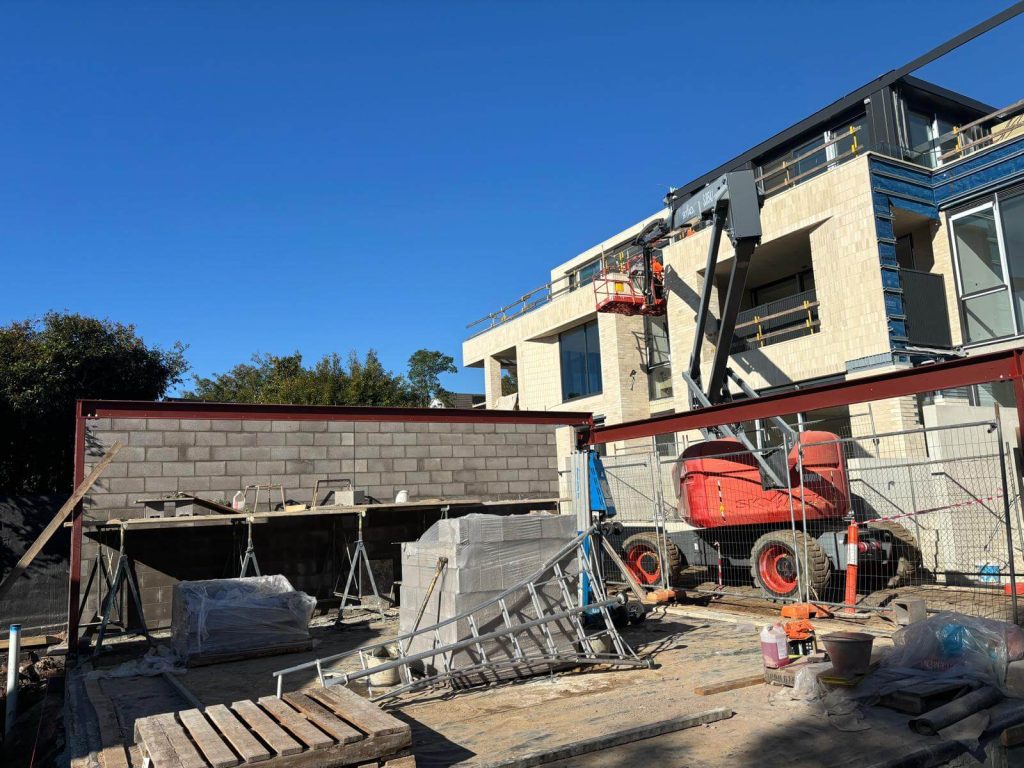
Heidelberg Lintels’ retaining wall steel construction offers effective erosion control solutions across Australia, enhancing property stability.
Retaining wall steel construction is the ultimate solution for controlling erosion, providing long-lasting stability to landscapes across Australia. Heidelberg Lintels specialises in offering high-quality steel retaining wall systems that prevent soil erosion, protect your property, and ensure structural integrity.
The Basics of Retaining Wall Steel Construction
Retaining wall steel construction refers to the use of steel materials to create retaining walls, which are structures designed to hold back soil, rocks, or other materials and prevent erosion or collapse in areas with significant elevation changes.
These walls are commonly used in landscaping, civil engineering, and construction projects, particularly in areas with steep slopes, hillsides, or uneven terrain.
Some notable things about retaining wall steel construction are as follows:
• Steel Panels or Sheets: Steel retaining walls often use corrugated or flat steel panels, which are strong, durable, and resistant to weathering. These panels can be pre-fabricated and installed quickly, reducing construction time and labour costs.
• Steel Reinforcements: Steel can also be used in the form of rebar (reinforcing bars) to strengthen concrete walls. The steel reinforcement helps the wall withstand the pressure of the soil behind it, especially in taller or load-bearing walls.
• Corrosion Resistance: Steel used in retaining wall construction is typically coated with protective materials such as galvanization or paint to prevent rust and corrosion, especially when exposed to moisture and the elements.
Utilise Retaining Wall Steel for Erosion Control
One notable application of retaining walls made from steel is erosion control. Here are some reasons why retaining wall steel construction can be effective for this particular application.
• High Strength and Durability: Steel retaining walls are highly resistant to the forces of erosion, including water flow, soil pressure, and wind. Steel’s strength allows it to withstand the intense pressure exerted by the soil behind it, especially in areas prone to heavy rainfall or rapid runoff.
• Corrosion-Resistant Materials: When properly treated or coated, steel is highly resistant to corrosion, which is critical for erosion control applications. In areas with frequent rainfall, high humidity, or proximity to water bodies, steel’s corrosion-resistant properties help prevent the wall from breaking down over time, ensuring long-term protection against erosion.
• Prevention of Soil Movement: Steel retaining walls are designed to hold back large volumes of soil and prevent shifting or slippage. These walls prevent soil from eroding due to water runoff, gravity, or wind, which can destabilise slopes, hillsides, or embankments.
• Versatility in Steep or Difficult Terrain: Steel retaining walls are highly versatile and can be adapted to a variety of terrains, including steep slopes or uneven ground. Their ability to form high, strong barriers in such conditions makes them a preferred choice for erosion control in locations that might otherwise be difficult to stabilise with other materials.
• Reduced Maintenance Needs: Unlike other materials that may degrade over time (such as timber or untreated concrete), steel walls with corrosion protection require significantly less maintenance. This reduced need for upkeep makes steel a cost-effective solution in the long term, especially for areas that face ongoing erosion threats.
Retaining wall steel is a superior choice for erosion control due to its strength, durability, corrosion resistance, and ability to withstand challenging environmental conditions. If you need help with retaining wall steel construction in your area, contact Heidelberg Lintels today!
